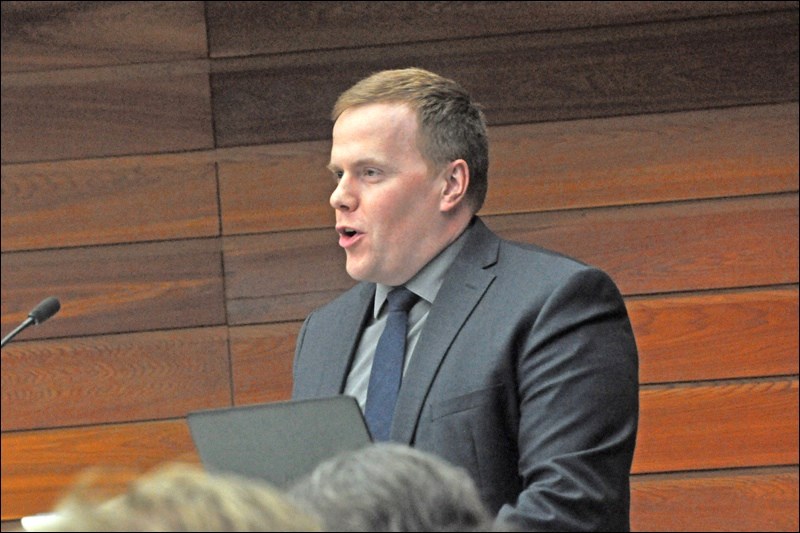The issue of downtown benches has made its way to City Hall.
Controversy had been swirling in the community about the benches, which were installed as part of the downtown revitalization efforts in recent years.
They have come under fire lately from residents who claim the benches attract vagrants, panhandlers and others who harass legitimate customers downtown.
The benches were brought up at a recent RCMP town hall meeting, and there was also a news report that some downtown business owners were preparing to send a delegation to City Hall to raise the issue.
That has yet to happen. Instead, council heard presentations Monday from two other delegations who supported retaining the benches.
One of those was Tracey Reimer of The Lighthouse.
“We all share the downtown, and we all share the benches. It takes relationships to build a healthy community,” Reimer said.
“The downtown businesses and owners deserve respect. I don’t question that. But so do those who sit and visit our benches.”
She added that “eliminating the benches in order to eliminate a population of people from the downtown business district” reminded her of “the early architects of colonialism.”
“The potential is great for healing and moving forward together. What we do with decisions such as the benches has impact on this bigger relationship,” said Reimer.
That reference to “decisions” drew a reaction from Mayor Ryan Bater, who pointed out “there is no pending decision on benches.” He said the decision on benches had been made years ago as part of the Downtown Master Plan to include them.
“The benches are there and, as we continue to rehabilitate downtown, we will stick with the Downtown Master Plan,” said Bater.
The other presentation came from local lawyer Benedict Feist, who expressed his own concerns about “the comments of my fellow citizens and business people in the downtown core of North Battleford” about the benches.
Feist said he had written at length about the intersection between Indigenous poverty and policing in the Battlefords, and noted there was “no better example of the problem than the overpolicing of the people who frequent downtown North Battleford, who I honestly suspect are among the most policed people in Canada.”
He said not a day goes by without him seeing RCMP or community safety officers driving by 101st Street or Central Park.
“I question whether the response of more overpolicing of these people will solve the problems that have existed in our community since European settlement of this area in the 1870s to the 1880s.”
He pointed to the system that had been in place in the 1880s when RCMP would examine the passes of Indigenous people and send them back to their reserves for being in town without a pass.
“We must remember the kind of message we are sending to the Indigenous members of the community … responding in a similar way 130 years later.”
Feist called for the Battlefords to move past “discredited broken windows” theory and called for “real solutions” such as an anti-poverty strategy and more initiatives such as managed-alcohol and the new rooming house.
“Ripping out benches and authorizing CSOs to harass vulnerable individuals and Indigenous people and write more tickets for people downtown” are not real solutions, he said.
Mayor Bater was receptive to Feist’s focus on the need for health or social supports – “something we’re very aware of as a municipal government,” he said.
As for the benches, Bater pointed out that while there was advocacy outside in the community on the issue, “there has been no advocacy here.”
“There has not been an official request to come to council to remove any of the benches,” said Bater.
In speaking to reporters, Bater acknowledged there has been talk “socially” outside of City Hall on the benches, but reiterated the city has not been formally approached by businesses to remove them from downtown.
“There’s no request for council to consider,” said Bater.



